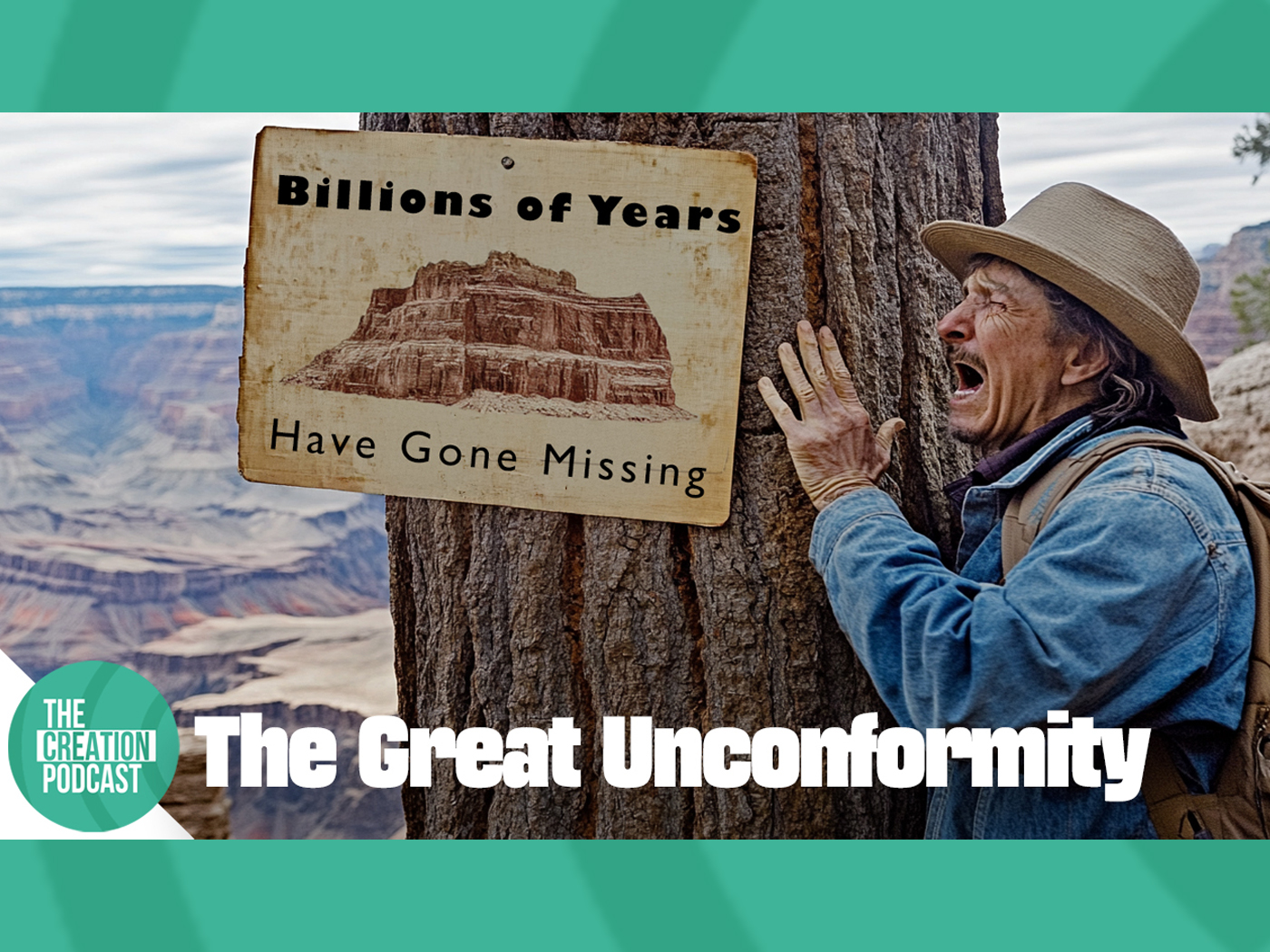I realize this is a controversial subject—but aren't they all? And far be it from me to avoid controversy! I can remember when the only people using the word "millennium" were specialists in Bible eschatology. They were discussing whether Christ would return before or after the prophesied future thousand-year kingdom of God on Earth—that is, whether Christ would return before or after the millennium. There were also the amillenialists who did not believe in a literal millennium at all—that this was a figurative term referring to the Christian dispensation. Most people probably did not know what a millennium was, or didn't care.
But now that the new millennium is upon us, everyone is using the word, either rejoicing that the age of Aquarius is about to dawn (with its global New Age order) or perhaps fearful that it signals the imminence of the great tribulation and Armageddon. Everyone is concerned about the Y2K millennium bug. These new "millennialists" are either predicting worldwide chaos as the world's computers all stop, shutting down everything, or else trying hard to stave off bank runs and other public riots by assuring us that everything will be fixed in time.
What does the Bible have to say about this millennium bug and the accompanying crisis? Actually, nothing at all!
But it does have a great deal to say about the future return of the Lord Jesus Christ and about world conditions near the time of the end. It really is important that Christians especially be familiar with the prophetic Scriptures. The Lord often emphasized that no one could know the date of His return, and therefore that we should always be watchful and ready. "Watch therefore," He said on one occasion, "for ye know neither the day nor the hour wherein the Son of man cometh" (Matthew 25:13).
Many Bible interpreters, both ancient and modern—some even prior to Christ's first coming—have taught that world history would occupy just seven millennia, corresponding to the seven days of Creation Week, citing II Peter 3:8 as their proof ("one day is with the Lord as a thousand years, and a thousand years as one day"). That is, according to this view, there would be 2000 years from the creation to the call of Abraham, 2000 years between Abraham and Christ, 2000 years in the Christian age, then a thousand-year "rest" period, the future millennium (mentioned six times in Revelation 20:2-7).
This interpretation, no doubt, has much appeal to it, and does seem to conform rather well to Biblical chronology (the Ussher Chronology, for example, dates creation at 4004 B.C. and the call of Abraham at about 2000 B.C.), and we now have about 2000 years since the birth of Christ, so it is understandable that many would place the beginning of the promised millennial age at 2000 A.D. Even such a skeptic as Stephen Jay Gould has written that "the date 4004 rests comfortably with the most important of chronological metaphors—the common comparison of the six days of God's creation with 6,000 years for the earth's potential duration. . . . Under this widely accepted scheme, the earth was created 4000 years before the birth of Christ and could endure as much as 2000 years thereafter ("Fall in the House of Ussher," Natural History, November 1991, p. 18).
Lest anyone misunderstand, he goes on to note that this is "a proposition soon to be tested empirically and, we all hope, roundly disproved" (ibid.). Since Dr. Gould is (or, at least, has been) an atheistic Marxist evolutionist, one can understand why he would hope that this proposition would soon be disproved. He—as well as others in the "we" to whom he referred—cannot enjoy the prospect of being there "when the Lord Jesus shall be revealed from heaven . . . taking vengeance on them that know not God, and that obey not the gospel of our Lord Jesus Christ" (II Thessalonians 1:7,8).
There are many, on the other hand (certainly including myself), who would be delighted if this interpretation turned out to be correct. However, there are problems.
Practically all New Testament scholars are convinced that Jesus was born several years before the A.D. period began. Most would say 4 B.C. While this would work well in terms of Ussher chronology, making the creation date to be 4000 B.C. exactly, it would also mean that we are already in the Biblical millennium, and present world conditions certainly don't look like it, nor has Christ returned.
More importantly, with all due respect to the many sincere Bible students who advocate this interpretation, the Bible nowhere says that the seven days of Creation Week correspond to seven millennia of earth history. II Peter 3 does not say that "one day means a thousand years," but rather that "one day is with the Lord like a thousand years."
That is, God can do in one day what would normally require a thousand years. Only this interpretation fits the context, which is contrasting evolutionary uniformitarianism ("all things continue as they were from the beginning of the creation") with Biblical creationism/catastrophism ("by the word of God the heavens were of old, and the earth . . . whereby the world that then was, being overflowed with water, perished" (II Peter 3:4-6). Peter even calls it "willing ignorance" to ignore the overwhelming evidence for supernatural creation and the worldwide cataclysmic deluge in favor of interpreting world history in terms of evolutionism and uniformitarianism (II Peter 3:5).
Although this particular prophecy does not necessarily prove the nearness of Christ's return, there are many others which do. For example Daniel 12:4 says that near "the time of the end: many shall run [literally `race'] to and fro, and knowledge [literally `science'] shall be increased." For thousands of years, the fastest that man could race was by horseback, but now in essentially one lifetime, we have seen the development of rail trains, then automobiles, then airplanes, then space ships! As far as science is concerned, the so-called scientific revolution began only about two centuries ago. In terms of "knowledge," for the first five millennia of human history, information was transmitted by handwriting. Then suddenly came the printing press, then telegraph, telephone, photography, motion pictures, radio, television, computers, and the global information superhighway! If fast travel and scientific progress are signs of "the time of the end," we surely are living in such a time.
There are, of course, many other indications that Christ is coming soon—the reestablishment of Israel as a nation, the increasing worldwide commitment to evolutionary humanism, the spread of the gospel to all nations, and many others. Even though we must not (in fact, cannot) set a date for His coming, we are justified in believing it is near. "When you shall see all these things," Christ said, "know that it is near, even at the doors" (Matthew 34:33).
What about Y2K? Is this a sign? Not really, except perhaps as a component of deteriorating world conditions in general. Jesus did say that the end-times would be characterized also by "Men's hearts failing them for fear, and for looking after those things which are coming on the earth?" (Luke 21:26), but this situation implies far more serious problems than Y2K.
Anyway, no matter what comes, the believing Christian has God's assurance that "I will never leave thee, nor forsake thee" (Hebrews 13:5). If we are faithful, the Apostle Paul would assure us that God "shall supply all your need according to His riches in glory by Christ Jesus" (Philippians 4:19). We can believe all His promises just as much in A.D. 2000 as in any earlier time.
A number of "survivalists," both Christian and non-Christian, have tried to prepare for Y2K by buying country homes, digging wells and septic tanks, setting up generators, and laying in vast stores of food and funds, even weapons. This may be well and good, but the great majority of Christians could not do this even if they wanted to.
It would perhaps be prudent to have a reasonable supply of cash, food, water, etc., on hand come January, but only in amounts that would eventually be used anyway even if no crisis develops. This is sound Biblical stewardship. We can trust the Lord for other needs if they should materialize.
While the signs of the Lord's soon return seem to focus largely on traumatic events and great troubles, deliverance from these (or from our own personal troubles) should not be our reason for wanting the Lord to come. We want Him to return in order that He might finally be accepted and honored in the world He created, not just to keep us from going through death or for relief from our own problems. Even when Paul knew he was about to be executed, he still "loved His appearing" (II Timothy 3:8).
We long to see His "will be done in earth, as it is in heaven" (Matthew 6:10), and this prayer of Christians throughout the ages will finally be answered when He comes again.
Remember also that the first stage of His return will not necessarily be in a time of great trauma. "Therefore be ye also ready: for in such an hour as ye think not the Son of man cometh" (Matthew 24:44). "For when they shall say, Peace and safety; then sudden destruction cometh upon them. . . . Therefore, let us not sleep, as do others; but let us watch and be sober" (I Thessalonians 5:3,6). "And now, little children, abide in Him; that, when He shall appear, we may have confidence, and not be ashamed before Him at His coming" (I John 2:28).
* Dr. Morris is Founder and President Emeritus of ICR.













